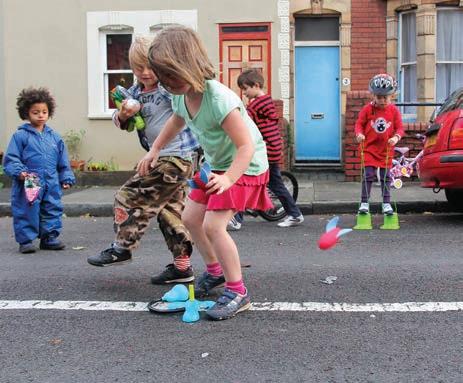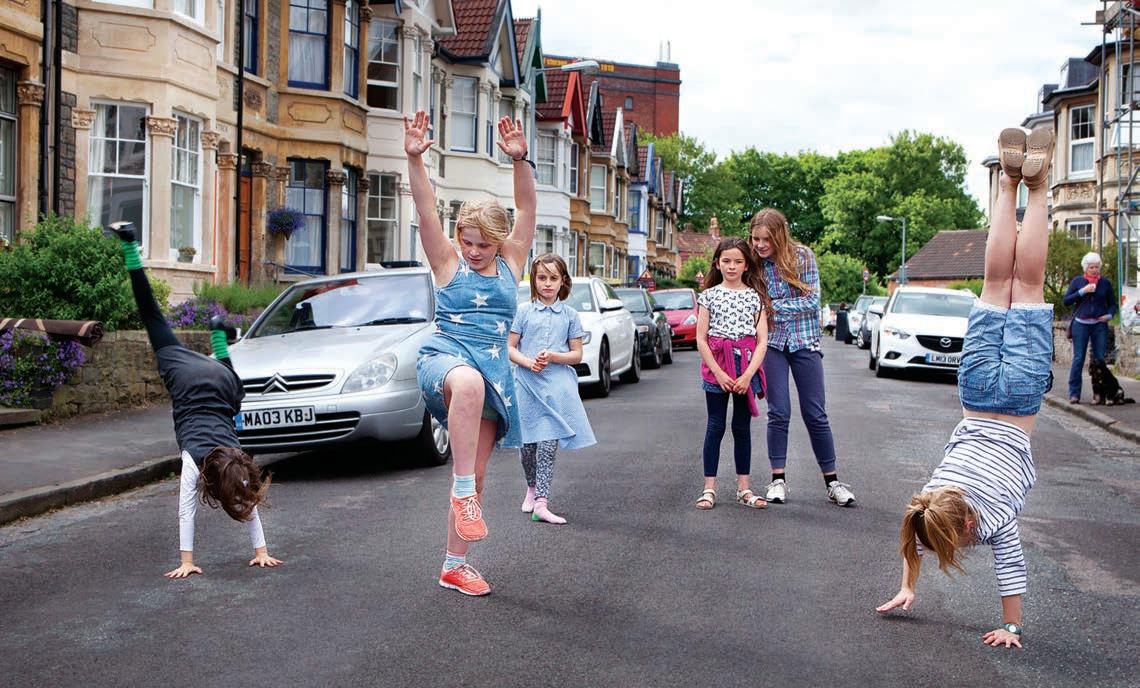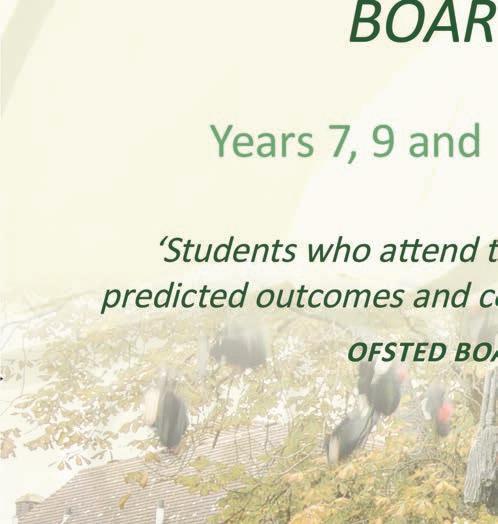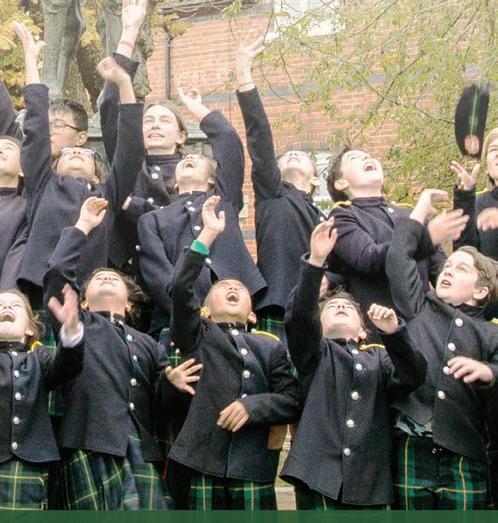
4 minute read
OUT to PLAY
How many times have you heard talk about the way things used to be when it came to play? In that far o world – before soft play and activity centres were even a thing – children would just head outside and get on with it. This is where Playing Out came in, back in 2009, when two mothers in Bristol got into a discussion with friends about the frustrations of finding a safe local space for their young children to play. The two friends, Alice Ferguson and Amy Rose, decided to do something and, with the help of neighbours, they embarked on a simple but groundbreaking experiment.
Applying using existing powers around temporary road closures for street parties, they persuaded Bristol City Council to let them close their own road for a few hours just for children’s play. Everybody loved it, residents young and old gathered on the streets – they were on to something. “It was a really successful way to animate the street with children and it captured the interest of the local press and Bristol City Council as an idea,” says Playing Out’s Streets Development O cer Lucy Colbeck. Captured is probably an understatement – it energised. Other Bristol streets started asking for the same thing, Bristol City
Council drew up a simpler way of enabling streets to close and soon there was a ripple e ect, nationally and even internationally. Playing Out was born as a movement to give children the right to play on home turf (or, rather, tarmac). Today its aims are o cially supported by 94 councils across the UK, although many more are receptive. Internationally, it has sparked a plethora of street play models across Europe and as far afield as the US, Australia, India and Japan.

The reason everybody loves the idea is that it is fundamentally a simple one. It empowers local communities to reclaim their area, just for a while, in order to let children do the most natural thing in the world. It requires no expensive entry fees or kit, no enormous planning (apart from the closure of the road, cul-de-sac or other chosen space) and children love it. They take their own toys outside, many learn to ride a bike on their own road and they meet other children. Often, older residents without children come out to watch, socialise or help steward. “There is something quite magical about it. People feel quite buzzed after it. It’s very much for everyone,” says Lucy Colbeck.

How It Works
Playing Out remains a small grass-roots team based in Bristol and, while it’s on hand to o er advice via its website, newsletters and guides, Playing Out schemes are community generated – activated by and for residents. Schemes are best started with conversations among neighbours. “We always say the best champion is a parent who’s doing it for themselves,” says Lucy Colbeck.
From there, residents win over others and persuade their local council or authority to give its blessing too. It’s important to note that a play street does not exclude anyone who lives there, so residents can drive home or away during a session. It’s all stewarded in a light touch and sensible way by the adults involved (whistles to start and stop play and a steward to walk in front of arriving or departing vehicles). A taster session is often the best way to see how the idea works. Many streets and neighbourhoods that have tried it become play streets regularly and this can be a year-round activity. Rain and cold do not deter well wrapped children from play (far from it) and adults can watch them getting pink cheeked in the fresh air while they enjoy a mug of hot chocolate and a chat with neighbours. In summer, of course, it’s hats and suncream for all.
If it sounds old-school idyllic, then that’s because it does seem to inspire old-school camaraderie. Neighbours get to know each other; children make new friends – and it’s all free. For children it’s also about getting a sense of the neighbourhood where they live. “Children have become almost invisible on our streets and their lives have become very packaged up – they are delivered from one place to another,” says Lucy Colbeck.
Free Play Benefits
Playing Out has lots of research evidence on its website about the benefits of this style of free play. The consensus among academics is that there is huge value for children in its spontaneity. “It’s so important for their development to come into contact with the unpredictable nature of the world. It’s their first step in engaging with other adults, other children, challenges that help them develop.”
Alliances, make-believe and peer-to-peer learning all happen on the street, as children make friends and find older children who will look out for them. They learn about sharing and collaboration, and how to stick up for themselves and each other. Researchers have also pointed to the fact that children engaging in free play are being active without even realising it – valuable in an era when obesity and mental-health challenges are front of mind.
Some play street organisers worry that younger children will get confused when the road opens again. Lucy Colbeck says that all evidence suggests not. Indeed, the careful stewarding to indicate when it’s safe to play may even increase children’s awareness of road safety and how to behave around tra c.
Playing Out has seen a big shift in attitude in areas where there are regular play streets – and welcomes it. “There are cul-de-sacs and quiet streets where over the years the culture has changed so much that the children play out between sessions and go and knock on the door to get each other,” says Lucy Colbeck. “That’s our end goal. We don’t really want play streets to exist. We want to see a world where children can just play out, but play streets are a really important part of that.”
To find out if your council supports play streets, and how to organise your own play street, visit playingout.net





















